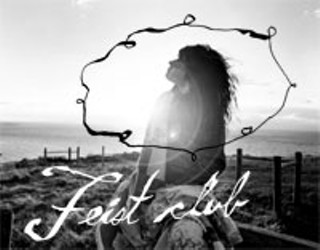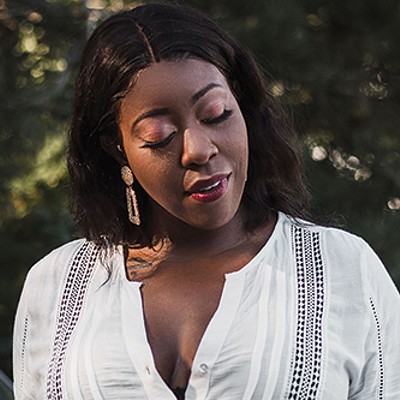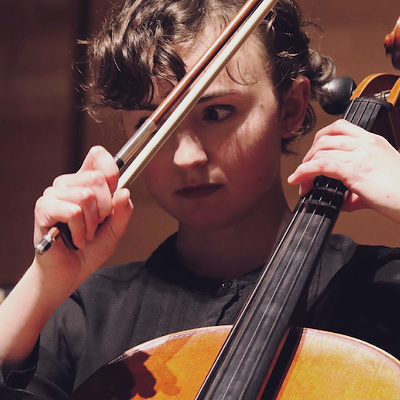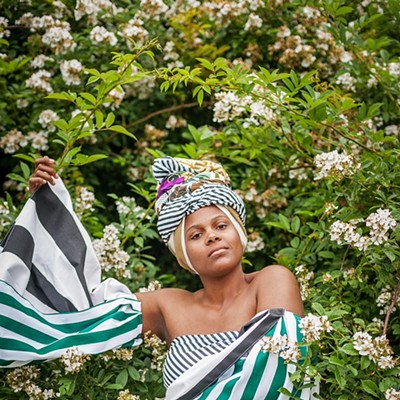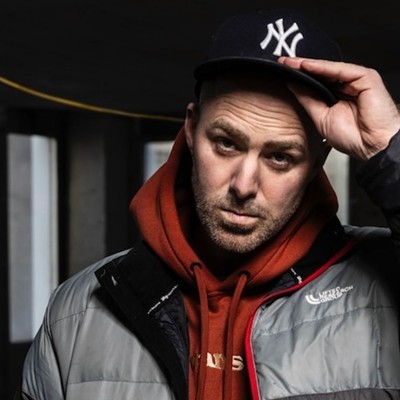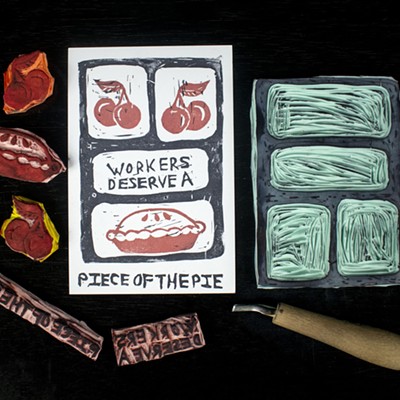Admit it: you wish Leslie Feist was your girlfriend.
One of the big stories in Canadian music in 2005, Feist did not just succeed in her native country, she conquered the world, with her face plastered on and music reviewed in any and every trendy magazine from France to Japan, the United States to Australia. In her wake, she left young and old, hipster and square waiting with bated breath for new material and pleading to the music gods for a tour-stop in their hometown. Now, for two Marquee shows this weekend, we have her all to ourselves.
There are many reasons to like Feist. The big one is her irresistible 2004 album Let it Die, which introduced her as an artist to watch. One of those records that begs to be played from beginning to end, Let it Die has something for everyone, including the jazzy, handclap driven “Mushaboom,” named after the Nova Scotia hamlet; the sultry-smooth “One Evening”; lusty, unrecognizable Bee Gees cover “Inside and Out” and the more contemplative opener “Gatekeeper”and the title track.
As much as Feist’s music, her look itself—as seen in those magazines and especially in her music videos—draws you in. See how she looks at the camera with those big brown eyes in the “Inside and Out” clip as if she’s singing to you, asking why you’re afraid to open up to her. Or how she lets Buck 65 think he’s seduced her in the “One Evening” video, then gives him the boot at the end of the night with no explanation, no hint of a follow-up phone call. Sure, this is the image created by media and the magic of marketing machines, but for a moment it feels like Feist can break your heart as easily as she can make you fall in love with her.
Of course, this means all is forgiven when her interview with The Coast is rescheduled, then pushed back due to the unpredictability of the Paris transportation system.
“Sorry about all the shifting,” the late-20s chanteuse apologizes over the phone. “I was just on Metro-land and it was nine million stops further than I thought it was.”
At the moment, Feist has been enjoying her first time off in more than two years. She played over 260 shows in each of those years, crisscrossing several continents along the way.
“In between this constant American twirling around in circles, going all over the place, I went to Japan, Australia and Canada and I always kind of ended up back in the States again,” she says. “I took December and did off-the-radar kind of stuff—like human stuff.”
But even time off means committing new material to tape. She’s recording a song for the upcoming Ethan Hawke movie based on his novel, The Hottest State, performing a song written by one-time Norah Jones collaborator and former tour-mate Jesse Harris.
Her life wasn’t always this busy. In fact, it started quietly in Amherst, Nova Scotia. Her parents lived in Sackville, NB, where her father was a professor at Mount Allison. Soon after her birth, she moved to Calgary, where she spent her formative years.
“I actually haven’t spent any time there at all because my parents lived in Sackville,” she says about her Nova Scotia roots. “The closest hospital was in Amherst. That’s the story I heard anyway. I’m a Bluenoser by blood.”
Feist formally started her career in music in her formative hometown Calgary with the punk band Placebo, who had the distinction of opening for the Ramones in the late ’90s. After a few years of touring with Placebo, she moved to Toronto, where she played with By Divine Right for a short while, then moved into an apartment with Merrill Nikter, now known as electro-punk shock artist Peaches. The apartment, called 701, included other avant-garde musicians Mocky, Taylor Savvy, Gonzales and The World Provider. Feist became Bitch Lap-Lap, a rapper who used a sock puppet as a stage prop.
Adding to her resume of indie cred of the next few years, she recorded and played with Swedish lounge-core wizards Kings of Convenience; Apostle of Hustle; members of Sloan, Matt Murphy and Peter Elkas on the unreleased Red Demos, pieces of which would become Let it Die; and with one of the biggest alternative acts in Canada, Broken Social Scene.
“For me, I was in Canada and lived in this really amazing, fertile, good era,” she recalls. “I was in what I perceived as the epicentre because my apartment happened to be where everyone hung out. All these people were in and out and that began a sense of doing what felt right and not strategizing.
“Broken Social Scene was born out of the same natural friendship,” she says. “Everyone in those friendships played music, so why not play music together in the context of friendship? Then, of course, it becomes a more honed goal after a while when you realize what you’ve happened upon and tripped over.”
Along the way, Feist recorded her debut solo album, Monarch, but it wasn’t until she released Let it Die that the world took notice of the shaggy brunette with the Ella Fitzgerald-inflected voice. For Canadians, that moment came last April when Feist won two Juno awards, one for best new artist and the other for best alternative album.
But best alternative album may be as deceiving as the best new artist label. Let it Die crosses several genres of music, a grab bag of influences Feist has acquired over the years. It’s a record that’s easily found in the music collection of your middle-aged uncle as much as your younger teenaged sibling. No surprise, then, that Let it Die went gold in Canada.
Popularity soaring, Feist hit the road and hasn’t looked back. But she remains grounded, answering each question with great detail and in good spirits. Unlike many critically acclaimed artists who believe that a lack of friendliness and courtesy maintains their rock star image, Feist comes across as easygoing and jovial. It shifts any preconceived notion of her and makes you like her even more. Regardless of the groundbreaking bands she’s played with, she counts her blessings more than she brags about them.
“Every time I do an interview, I think how lucky I am that even that one person is curious enough to ask the questions they’re asking,” Feist says. “Having absolutely no expectations about the record when we made it, it was such a fluke that we even ended up making an album. We didn’t even know it was an album until it was three quarters of the way done, of just song-by-song-by-song until I thought, this isn’t just songwriting, this is a record.
“So going into it so naively, I think I want to maintain some of that, even though you’re just like a wheel that’s been turned around so many times that you really begin to know the road,” she says. “You don’t want to get to know it too well, you still want to be able to have the capacity to surprise yourself and be surprised. I would never assume or want anything other than what I’ve been insanely fortunate enough to get.”
Two things about 2006 excite Feist. The first is her new record, which she’ll begin working on in February. After a two-week session in Berlin, she’ll return to Paris the following month to finish the writing stages in a four-storey mansion next to the Seine river.
Secondly, this is her is a chance to live a normal life again, a luxury lost after playing more than 500 shows the past two years. When asked what she likes to do when she’s not performing the duties of the It Girl rock star, she laughs, then hesitates, as if thinking back to a time long past.
“I don’t even remember,” she says. “Here I am with six days to myself and I don’t know what to do. I used to vaguely have this notion of riding around on my bike and liking to cook.
“But I just need to remember how you go about doing those things, you know?” she says. “I’m hungry! Why is there nothing on the table wrapped in Saran Wrap?”
It’s obvious that the success of Let it Die and the hard work that followed have allowed for some of the finer things in life—a home in Paris, creative control over her music, travels to foreign locales. At this moment, though, those things pale in comparison to living the life that most of us live, the life of a “normal person.”
“I’m really looking forward to that time in the spring when I can make the record and ride my bike to the store,” she says. “I’m going to live this kind of calm, stationary life. For a month, anyway.”
Near the end of the criminally short interview, we’re interrupted. “Oh shit, there’s another call. Can I get it? I’ll be two seconds…” After a busy signal, the phone disconnects us for good.
And like an intriguing person whom you admire from afar, but never get to know as well as you’d like to, she’s gone as soon as she arrives. But as always, all is forgiven.
Feist w/Jenn Grant and Shotgun & Jaybird, January 14 (sold out) and w/Shotgun & Jaybird January 15 (all-ages) at the Marquee Club, 2037 Gottingen, $20 adv/$25 door, 494-3820

